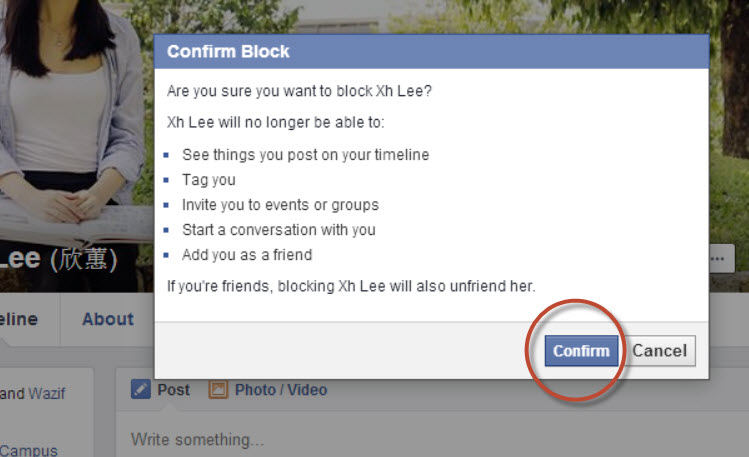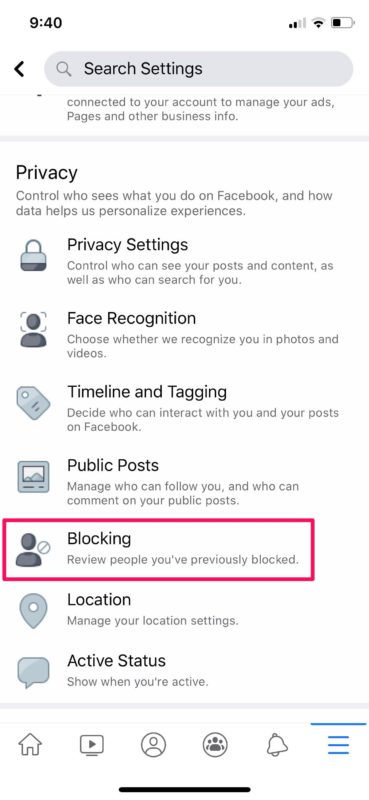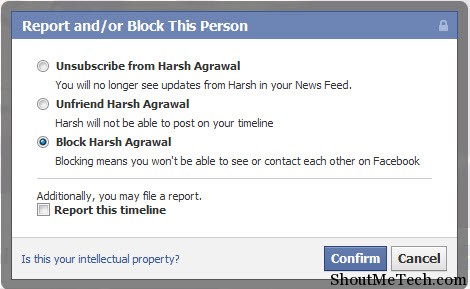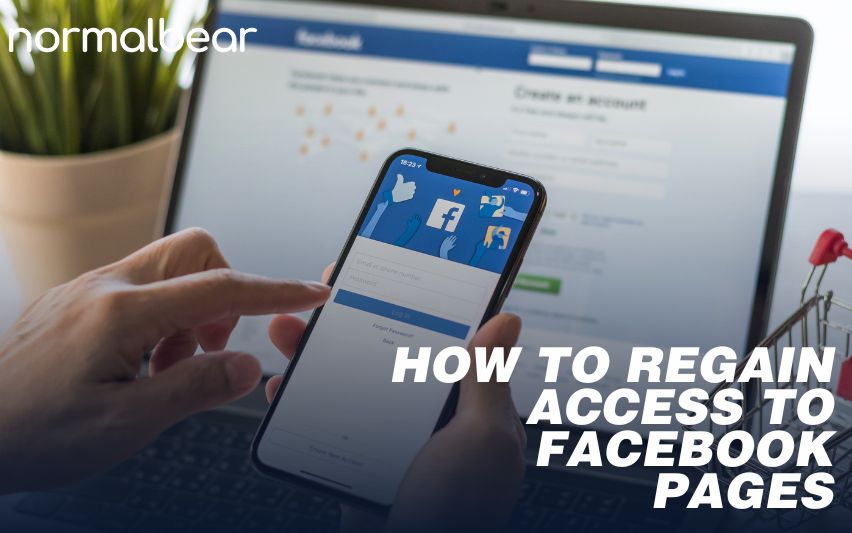Why Blocking Someone May Be Necessary
Maintaining a positive and respectful online presence is crucial for businesses on Facebook. However, there may be instances where blocking someone becomes necessary to protect the page and its community. Harassment, spamming, and posting inappropriate content are some of the common reasons why a business may need to block someone from their Facebook page. Blocking someone can help prevent further unwanted interactions and maintain a safe and respectful environment for customers and followers.
For example, if someone is repeatedly posting spam comments on a business’s Facebook page, blocking them can help prevent further disruptions and maintain the page’s integrity. Similarly, if someone is harassing or bullying a business or its customers on Facebook, blocking them can help prevent further harm and protect the page’s community.
In addition to protecting the page and its community, blocking someone can also help businesses maintain their online reputation. By removing unwanted interactions and content, businesses can ensure that their Facebook page presents a positive and professional image to customers and followers.
Furthermore, blocking someone can also help businesses comply with Facebook’s community standards and terms of service. By removing content that violates these standards, businesses can avoid having their page suspended or terminated.
Overall, blocking someone from a business Facebook page may be necessary to protect the page and its community, maintain a positive online presence, and comply with Facebook’s community standards. By understanding the reasons why blocking someone may be necessary, businesses can take steps to maintain a safe and respectful online environment.
Understanding Facebook’s Blocking Features
Facebook provides several features to help businesses manage unwanted interactions on their pages. Two of the most commonly used features are blocking and reporting. While both features can help protect a business’s online presence, they serve different purposes and have different effects.
Blocking someone on Facebook prevents them from interacting with a business’s page, including posting comments, sending messages, and viewing content. When someone is blocked, they will not be able to see the business’s page or any of its content, and the business will not be able to see their comments or messages. Blocking is a useful feature for businesses that need to protect themselves from harassment, spamming, or other forms of unwanted interaction.
Reporting someone on Facebook, on the other hand, is a way for businesses to notify Facebook of potential violations of their community standards. When someone is reported, Facebook will review the content or behavior in question and take action if necessary. Reporting is a useful feature for businesses that need to address specific instances of unwanted behavior, but do not need to block the individual entirely.
For example, if someone is posting spam comments on a business’s Facebook page, the business may want to report the comments to Facebook rather than blocking the individual. This allows Facebook to review the comments and take action if necessary, while also allowing the individual to continue interacting with the page in a positive way.
In contrast, if someone is harassing or bullying a business or its customers on Facebook, the business may want to block the individual to prevent further harm. Blocking is a more severe action than reporting, and should be used only in situations where it is necessary to protect the business and its community.
By understanding the difference between blocking and reporting, businesses can use these features effectively to protect their online presence and maintain a positive and respectful community on their Facebook page.
How to Block Someone from Your Business Facebook Page
Blocking someone from your business Facebook page can be a useful way to protect your online presence and prevent unwanted interactions. Here’s a step-by-step guide on how to block someone from your business Facebook page:
Step 1: Access your page’s settings. To do this, log in to your Facebook account and navigate to your business page. Click on the “Settings” icon, which is represented by a small gear icon, and select “Settings” from the dropdown menu.
Step 2: Find the blocking feature. In the Settings menu, click on “People and Other Pages” and then select “Blocked People and Pages”. This will take you to a page where you can view a list of people and pages that you have already blocked.
Step 3: Enter the person’s name or email address. To block someone, enter their name or email address in the search bar at the top of the page. You can also block someone by clicking on their name or profile picture if they have interacted with your page before.
Step 4: Confirm the block. Once you have entered the person’s name or email address, click on the “Block” button to confirm the block. You will be asked to confirm that you want to block the person, so make sure you are certain before proceeding.
It’s also important to note that blocking someone on Facebook will not delete any previous interactions they may have had with your page. If you want to remove any previous comments or messages from the person you are blocking, you will need to do so manually.
Additionally, blocking someone on Facebook will not prevent them from seeing your page’s public content. If you want to prevent someone from seeing your page’s content, you will need to restrict their access to your page instead of blocking them.
By following these steps, you can block someone from your business Facebook page and protect your online presence from unwanted interactions. Remember to always use this feature responsibly and only block people who are engaging in behavior that is harassing, spamming, or otherwise violating Facebook’s community standards.
Blocking vs. Restricting: What’s the Difference?
When it comes to managing unwanted interactions on your business Facebook page, you have two options: blocking and restricting. While both options can help protect your page, they serve different purposes and have different effects.
Blocking someone on Facebook prevents them from interacting with your page, including posting comments, sending messages, and viewing content. When someone is blocked, they will not be able to see your page’s content, and you will not be able to see their comments or messages.
Restricting someone’s access to your page, on the other hand, limits their ability to interact with your page, but does not prevent them from viewing your content. When someone’s access is restricted, they will not be able to post comments or send messages, but they will still be able to view your page’s content.
The main difference between blocking and restricting is the level of access the person has to your page. Blocking is a more severe action that completely prevents someone from interacting with your page, while restricting is a more moderate action that limits their ability to interact with your page.
So, when should you block someone, and when should you restrict their access? Blocking is usually necessary when someone is engaging in behavior that is harassing, spamming, or otherwise violating Facebook’s community standards. Restricting is usually more suitable when someone is posting negative or unwanted content, but is not necessarily violating Facebook’s community standards.
For example, if someone is posting spam comments on your page, you may want to block them to prevent further unwanted interactions. On the other hand, if someone is posting negative feedback about your business, you may want to restrict their access to your page to prevent further negative comments, but still allow them to view your content.
By understanding the difference between blocking and restricting, you can make informed decisions about how to manage unwanted interactions on your business Facebook page and protect your online presence.
What Happens When You Block Someone on Facebook
When you block someone on Facebook, it prevents them from interacting with your page in any way. This means they will not be able to post comments, send messages, or view your content. Blocking someone also prevents them from seeing your page’s content, including posts, photos, and videos.
Additionally, blocking someone on Facebook will also prevent them from tagging your page in their posts or comments. This can help prevent unwanted interactions and keep your page’s content from being associated with someone who is engaging in negative or harassing behavior.
It’s also important to note that blocking someone on Facebook is not the same as deleting their comments or messages. If someone has already posted comments or sent messages to your page, blocking them will not remove those interactions. You will need to manually delete those interactions if you want to remove them from your page.
Blocking someone on Facebook can also have some limitations. For example, if someone is blocked from your page, they may still be able to see your page’s content if it is shared by someone else. Additionally, blocking someone on Facebook does not prevent them from creating a new account and interacting with your page again.
Despite these limitations, blocking someone on Facebook can be an effective way to protect your page from unwanted interactions and maintain a positive online presence. By understanding what happens when you block someone on Facebook, you can make informed decisions about how to manage your page and keep it safe from negative or harassing behavior.
It’s also worth noting that Facebook provides a feature to review blocked users, which allows you to see who you have blocked and why. This feature can be useful in case you need to unblock someone or if you want to keep track of who you have blocked.
Overall, blocking someone on Facebook is a useful tool for managing unwanted interactions and maintaining a positive online presence. By understanding how blocking works and what it can do, you can use this feature to protect your page and keep it safe from negative or harassing behavior.
Alternative Solutions to Blocking
While blocking someone from your business Facebook page can be an effective way to protect your online presence, it’s not always the best solution. In some cases, alternative solutions may be more suitable, such as reporting the person to Facebook or using page moderation tools.
Reporting someone to Facebook is a good option if you believe they are violating Facebook’s community standards or terms of service. When you report someone, Facebook will review the content or behavior in question and take action if necessary. This can be a good way to address unwanted interactions without blocking the person entirely.
Using page moderation tools is another alternative to blocking someone. Facebook provides a range of moderation tools that allow you to control who can post on your page, what types of content are allowed, and how comments are displayed. These tools can help you manage unwanted interactions and maintain a positive online presence without blocking someone.
For example, you can use Facebook’s comment moderation tool to review and approve comments before they are posted on your page. This can help prevent unwanted interactions and ensure that only positive and respectful comments are displayed on your page.
Another alternative to blocking someone is to use Facebook’s page rules feature. This feature allows you to set rules for your page, such as prohibiting certain types of content or behavior. When someone violates one of your page rules, you can take action, such as removing their comment or blocking them from your page.
Ultimately, the best solution will depend on the specific situation and the type of unwanted interaction you are experiencing. By considering alternative solutions to blocking, you can find a solution that works best for your business and helps you maintain a positive online presence.
It’s also worth noting that Facebook provides a range of resources and support to help businesses manage unwanted interactions and maintain a positive online presence. These resources include Facebook’s Help Center, which provides information and guidance on how to use Facebook’s moderation tools and manage unwanted interactions.
By taking advantage of these resources and considering alternative solutions to blocking, you can protect your business Facebook page from unwanted interactions and maintain a positive online presence.
Best Practices for Managing Your Business Facebook Page
Managing a business Facebook page requires a strategic approach to create a positive and respectful online community. Here are some best practices to help you manage your page effectively:
1. Create a clear page policy: Establish a clear policy for your page that outlines what types of content are allowed and what types of behavior are not tolerated. This will help you manage unwanted interactions and maintain a positive online presence.
2. Use Facebook’s built-in moderation tools: Facebook provides a range of moderation tools that can help you manage unwanted interactions on your page. Use these tools to review and approve comments, and to block or restrict users who are engaging in negative or harassing behavior.
3. Respond to negative feedback: Responding to negative feedback in a timely and professional manner can help to diffuse tense situations and maintain a positive online presence. Make sure to respond to all comments and messages in a respectful and courteous manner.
4. Post high-quality content: Posting high-quality content that is relevant and engaging to your audience can help to create a positive online community. Make sure to post content that is visually appealing and includes a clear call-to-action.
5. Engage with your audience: Engaging with your audience is critical to creating a positive online community. Respond to comments and messages, ask for feedback, and use Facebook’s built-in features to encourage engagement and interaction.
6. Monitor your page’s analytics: Monitoring your page’s analytics can help you understand your audience and create content that is relevant and engaging to them. Use Facebook’s built-in analytics tools to track your page’s performance and make data-driven decisions.
7. Use Facebook’s page rules feature: Facebook’s page rules feature allows you to set rules for your page, such as prohibiting certain types of content or behavior. Use this feature to establish clear guidelines for your page and maintain a positive online presence.
By following these best practices, you can create a positive and respectful online community on your business Facebook page and maintain a strong online presence.
Conclusion: Protecting Your Business Facebook Page
Protecting your business Facebook page from unwanted interactions is crucial to maintaining a positive and respectful online presence. By understanding the reasons why blocking someone may be necessary, how to block someone from your business Facebook page, and the alternative solutions to blocking, you can take steps to protect your page and maintain a strong online presence.
Remember, blocking someone from your business Facebook page should be a last resort, and alternative solutions such as reporting them to Facebook or using page moderation tools may be more suitable in some cases. By following the best practices outlined in this article, you can create a positive and respectful online community on your business Facebook page and maintain a strong online presence.
In conclusion, protecting your business Facebook page from unwanted interactions requires a strategic approach that includes understanding Facebook’s blocking features, using alternative solutions to blocking, and following best practices for managing your page. By taking these steps, you can maintain a positive and respectful online presence and protect your business from unwanted interactions.
By following the steps outlined in this article, you can learn how to block someone from your business Facebook page and protect your online presence from unwanted interactions. Remember to always use Facebook’s blocking features responsibly and to follow the best practices outlined in this article to maintain a positive and respectful online community on your business Facebook page.







